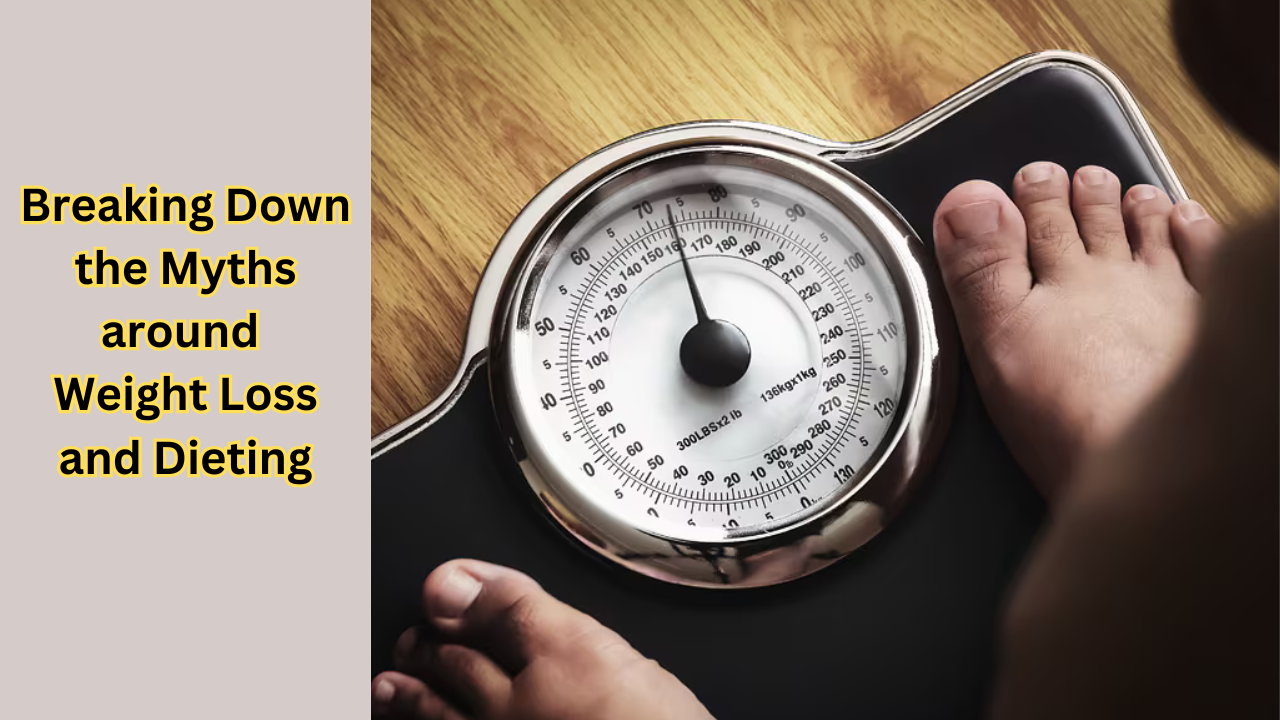Despite being one of the most talked-about subjects in health and wellness weight loss and dieting are still surrounded by myths. Myths frequently sabotage advancement and encourage bad habits from miraculous diets to false claims. Let us dispel some of the most widespread misconceptions regarding dieting and weight loss separating fact from fiction to assist you in reaching long-term health objectives.
Myth 1: Carbs Are the Enemy
The idea that carbs lead to weight gain is among the most persistent myths. Although cutting carbohydrates may initially result in rapid weight loss this does not imply that carbohydrates are bad. The body needs carbohydrates as an energy source, particularly for the muscles and brain.
The Truth: The type of carbs you consume matters. Opt for whole grains, fruits, and vegetables instead of refined carbs like white bread and sugary snacks. Balance is key.
Myth 2: You Need to Starve to Lose Weight:
Although they may produce immediate results crash diets and severe calorie restriction are neither sustainable nor healthy. The body can lose muscle mass slow metabolism and deplete energy when it is starved.
The Truth: Sustainable weight loss comes from a modest calorie deficit combined with a balanced diet. Aim to nourish your body with nutrient-dense foods instead of depriving it.
Myth 3: Fat-Free Foods Are Better for Weight Loss:
The idea that cutting out fat completely is the secret to losing weight has been strengthened by the popularity of fat-free products. But to make up for the flavor loss many fat-free foods are laden with added sugars which reduces their nutritional value.
The Truth: Healthy fats, like those found in avocados, nuts, and olive oil, are essential for bodily functions and can help you feel full. Focus on quality fats instead of eliminating them entirely.
Myth 4: Eating Late at Night Causes Weight Gain:
A lot of people think that eating after a certain hour inevitably causes weight gain. However, the overall amount of calories consumed as opposed to burned during the day is what largely determines weight gain.
The Truth: Timing plays a smaller role than portion sizes and food choices. Late-night eating can lead to weight gain if it’s linked to mindless snacking or overindulgence, but the key is overall caloric balance.
Myth 5: You Can Target Fat Loss in Specific Areas:
A common misconception that is supported by targeted exercises and devices is the notion that fat can be spot-reduced or removed from particular areas such as the thighs or belly.
The Truth: Fat loss happens uniformly across the body and depends on genetics, diet, and overall activity levels. While targeted exercises can strengthen and tone muscles, they won’t specifically burn fat in those areas.
Myth 6: All Calories Are Equal:
Although a calorie is a unit of energy your body is greatly impacted by the source of those calories. 100 calories from vegetables for instance will have a different effect than 100 calories from a sugary drink.
The Truth: The quality of your calories matters. Nutrient-dense foods provide vitamins, minerals, and fiber that support your overall health, whereas empty calories offer little nutritional value.
Myth 7: Weight Loss Is a Linear Process:
A common expectation is that during a weight loss journey, the number on the scale will gradually decrease. However, things like muscle growth hormonal fluctuations and water retention can cause weight to change every day.
The Truth: Weight loss involves ups and downs. Focus on long-term trends and non-scale victories, like improved energy or fitting into smaller clothes.
Myth 8: Detox Diets Help You Lose Weight Quickly:
Weight loss is accelerated and toxins are purportedly eliminated by detox diets. Although you may initially lose water weight these diets can be dangerously low in calories and frequently lack scientific support.
The Truth: Your body is equipped with organs like the liver and kidneys that detoxify naturally. Instead of relying on restrictive cleanses, prioritize a balanced diet with whole foods.
Myth 9: Exercise Alone Is Enough to Lose Weight:
Even though exercise is important for general health and can help you lose weight its common to rely only on workouts without taking care of your diet.
The Truth: A combination of a healthy diet and regular exercise yields the best results. Weight loss is largely influenced by dietary choices, while exercise helps build muscle and improve metabolism.
Myth 10: Supplements and Pills Can Replace Healthy Habits:
Supplements for weight loss frequently offer short-term solutions but infrequently produce long-term effects. Some could even be harmful to your health.
The Truth: No pill or powder can replace the benefits of a balanced diet and regular physical activity. Focus on sustainable habits rather than shortcuts.
Embracing the Truth about Weight Loss:
You can make wise decisions on your weight loss journey if you know the truth about these myths. These practical pointers will help you:
- Set realistic goals: Aim for steady progress rather than rapid weight loss.
- Practice mindful eating: Pay attention to hunger and fullness cues to avoid overeating.
- Stay consistent: Build habits that you can maintain long-term.
- Seek professional advice: Consult a nutritionist or dietitian for personalized guidance.
Weight loss is about developing a lifestyle that promotes your health and well-being not about using tricks or quick fixes. You can concentrate on what works and attain long-term success by dispelling these myths.
